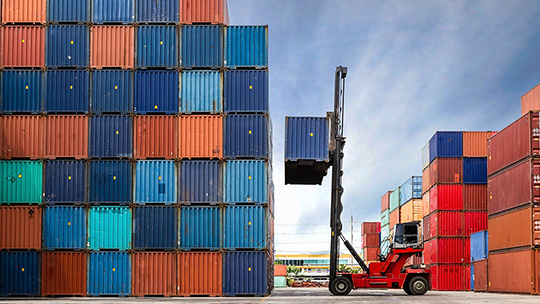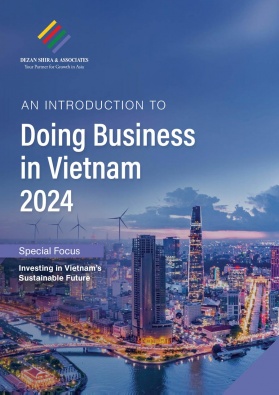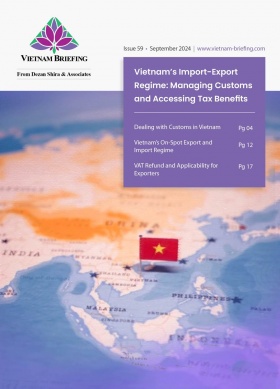Proposed Vietnam Industrial Classification System Prioritizes Green Economy
The Ministry of Planning and Investment (MPI) is inviting public comments on a draft decision from the Prime Minister regarding the establishment of a new Vietnam Standard Industrial Classification System (VSIC). A key feature of this system is the inclusion of a National Green Economy framework, aimed at promoting sustainable practices in Vietnam’s industrial sectors.
The draft, which was released on the Government Electronic Information Portal for public consultations on September 24, proposes an economic sector system to create a uniform framework for State statistical work.
Proposed list of economic sectors in Vietnam
According to the draft, Vietnam’s economic sector system will be categorized into five levels, clearly specified in Appendix 1:
- Level 1 includes 22 industries, coded alphabetically from A to V;
- Level 2 includes 87 industries, with each industry being coded with two numbers according to the corresponding level 1;
- Level 3 includes 259 industries, with each industry being coded with three numbers according to the corresponding level 2;
- Level 4 includes 492 industries, with each industry being coded with four numbers according to the corresponding level 3; and
- Level 5 includes 733 industries, with each industry being coded with five numbers according to the corresponding level 4 branch.
The latest version of VSIC was promulgated under Circular No. 27/2018/QD-TTg, which also structures the economic sectors in Vietnam into five levels. However, the new draft has adjusted the industries listed in these levels and supplemented them with notes on green classification.
National Green Economy Framework
The framework is the key innovation of the proposed VSIC, which is divided into three main categories, including:
- Green sectors: These industries consist of economic activities that align with green growth goals and do not significantly harm other environmental objectives.
- Transitioning sectors: While potentially harmful to some environmental targets, the sectors in this category play a crucial role in Vietnam’s economy and will be encouraged to shift towards more sustainable practices.
- Supporting sectors: These industries include activities that indirectly contribute to green growth by aiding or complementing green industries.
Classification in the framework
According to Appendix 2 of the draft, the green economy framework includes 11 key Level 1 sectors, including:
- Agriculture, forestry and fishery;
- Processing and manufacturing industry;
- Production and distribution of electricity, gas, hot water, steam and air conditioning;
- Water supply; waste and wastewater management and treatment activities;
- Construction;
- Transport, warehousing;
- Publishing, broadcasting, content production and distribution activities;
- Telecommunications, computer programming, computer consulting and other information service activities;
- Financial, banking and insurance activities;
- Real estate business activities; and
- Professional, scientific and technological activities.
How to identify a sector as “green”?
An economic sector is defined as a green economy when it meets at least one of the following environmental protection objectives:
- Climate change mitigation;
- Climate change adaptation;
- Ecosystem and biodiversity protection; or
- Resource resilience and the transition to a circular economy.
Detailed definitions, standards, and guidance will be discussed and developed by competent ministries and governmental agencies.
Implementation responsibilities
The draft clearly dedicates the duties of key ministries in implementing the upcoming VSIC.
The Ministry of Planning and Investment is in charge of:
- Developing documents and handbooks to guide the application of the Vietnamese economic sector system and the green economic sector system;
- Building conversion tables between the new VSIC and the 2018 VSIC, ensuring consistent comparison between sectors; and
- Coordinating with relevant ministries and ministerial-level agencies to provide specific guidance.
The Ministry of Natural Resources and Environment shall coordinate with ministries, ministerial-level agencies, and government agencies to update thresholds and technical criteria for each national green economic sector.
Vietnam’s Prime Minister calls for acceleration in greening the economy
On October 2, 2024, Prime Minister Pham Minh presided over the 5th meeting of the national steering committee for implementing Vietnam’s commitments at the 26th UN Climate Change Conference of the Parties (COP26). The meeting aimed to assess the implementation of Vietnam’s obligations, focusing on the progress of the Just Energy Transition Partnership (JETP) and the Asia Zero Emissions Community (AZEC).
The PM emphasized the urgent need to refine institutional frameworks and policy mechanisms that mobilize resources, particularly through public-private partnerships, to promote green development. Key recommendations from the meeting include enhancing policies for digital and green transitions, developing new technologies to reduce emissions, and cultivating high-quality human resources for sustainable development.
The PM noted that despite difficulties, Vietnam has managed to sustain growth, control inflation, and promote digital and green economies. Advances in these areas have contributed significantly to the country’s overall achievements in addressing climate change and fostering sustainable development.
Conclusion
This comprehensive system is designed to promote Vietnam’s green economy by offering clear guidelines for various industries. Thus, it encourages sustainable practices across multiple sectors. Implementing this framework will ensure that Vietnam’s economic growth aligns with environmental responsibility and supports long-term sustainability.
The draft decision is now available for public consultation. This proposal highlights the government’s commitment to integrating economic development with environmental protection, paving the way for a greener future.
About Us
Vietnam Briefing is published by Asia Briefing, a subsidiary of Dezan Shira & Associates. We produce material for foreign investors throughout Asia, including ASEAN, China, and India. For editorial matters, contact us here and for a complimentary subscription to our products, please click here. For assistance with investments into Vietnam, please contact us at vietnam@dezshira.com or visit us at www.dezshira.com.
Dezan Shira & Associates assists foreign investors throughout Asia from offices across the world, including in Hanoi, Ho Chi Minh City, and Da Nang. We also maintain offices or have alliance partners assisting foreign investors in China, Hong Kong SAR, Dubai (UAE), Indonesia, Singapore, Philippines, Malaysia, Thailand, Bangladesh, Italy, Germany, the United States, and Australia.
- Previous Article Major Upgrade of Vietnam’s Port System Under Decision No. 442/QD-TTg
- Next Article Vietnam Visa Costs: What You Need to Know
































